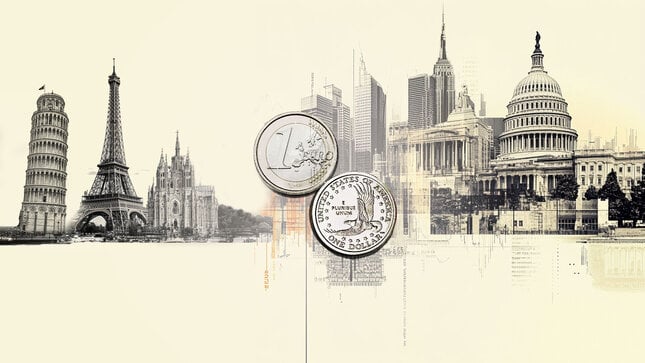The GBP continues to give ground versus the USD early in 2015. The currency pair continues to be sensitive to slow global growth, the glut in inventories driving energy prices lower, and the uncertainty surrounding central bank actions this year. On top of that, this is a politically charged year as the United Kingdom faces general elections in May which are expected to be too close to call. These factors are delaying the Bank of England (BoE) from taking further action.
This week, the central bank led by Mark Carney is not expected to change rates, and the market will be focused on the fallout from the minutes of the meetings of the bank’s court during the credit crisis that were just released. Carney will be thankful that even if he was labeled an “unreliable boyfriend” last year, the minutes in question are from a time when he was “rocking” at the helm of the Bank of Canada. Sir Mervyn King has been on the spotlight as the Old Lady was caught unaware of the impending crisis that was to unfold. The former BoE governor has said publicly that raising rates now could derail the economic recovery. During his last year at Threadneedle Street, Sir King was a proponent of expanding stimulus so this comes at no surprise.
Uncertain Outlook Takes BoE Out of Rate Hike Pole Position
The BoE and the U.S. Federal Reserve are the two major central banks currently sharing the lead on expected interest rate hikes. Not long ago, it was the Old Lady alone that had investors guessing as to when a rate hike would be announced, while the Fed struggled to successfully communicate with the markets after new Chair Janet Yellen took the reins. While the U.S. economy speeded up and hit post-crisis highs, the U.K. has slowed. There are no guarantees that there will be a rate hike in 2015 as the results of the election could have deep economic consequences such as a dreaded “Brexit” (read: British exit) from the European Union.
Carney turned dovish in the last two quarters of 2014, influenced by global economic weakness, low inflation in the U.K., and the eurozone’s abysmal economy. The BoE’s Chief Economist Andrew Haldane admitted to the press he was gloomier about the U.K. economy while the lack of action from the European Central Bank (ECB) will continue to affect the British economy.

Although the United Kingdom’s economy has slowed, the situation is not a dire as that which Europe and Japan are facing. The threat of deflation looms over both economies as officials fight political battles that block much needed reform.

General Elections and Global Economy to Drive the Pound in 2015
Adding to uncertainty over the fragile state of the global economy, the U.K. will have what some analysts are calling the closest federal elections since 1945. The BoE will probably await the outcome of the electoral process next May before announcing any rate hike. The rise of the right-wing U.K. Independence Party (UKIP) will add a new wrinkle to the usual two-leading party system. The Labour and Conservative parties cannot ignore the rising anti-E.U. sentiment that has fueled the rise of UKIP, and will add to the debate around stimulus versus austerity that is playing out around the world.
The pound is now trading at its lowest levels against the dollar since August 2013. On the release front, the British construction purchasing managers’ index (PMI) softened in December, dropping to 57.6 points. British PMIs continue to point to weakness in the U.K. economy.
This was well short of the estimate of 59.2 and marked the index’s worst performance since July 2013. On Wednesday, we’ll get a look at the British services PMI, which is expected to post a strong reading for December. On Friday, the British manufacturing PMI dipped to 52.5 points, a three-month low. The index was short of the estimated 53.7 points. The pound reacted sharply, losing 260-points on the day.
This Friday, the U.S. Department of Labor will publish its monthly nonfarm payrolls (NFP) data. A positive release will boost the USD against the GBP as the U.S. recovery continues to gather momentum.
Recommended Content
Editors’ Picks

EUR/USD accelerates losses to 1.0930 on stronger Dollar
The US Dollar's recovery regains extra impulse sending the US Dollar Index to fresh highs and relegating EUR/USD to navigate the area of daily troughs around 1.0930 in the latter part of Friday's session.

GBP/USD plummets to four-week lows near 1.2850
The US Dollar's rebound keep gathering steam and now sends GBP/USD to the area of multi-week lows in the 1.2850 region amid the broad-based pullback in the risk-associated universe.

Gold trades on the back foot, flirts with $3,000
Gold prices are accelerating their daily decline, steadily approaching the critical $3,000 per troy ounce mark as the Greenback's rebound gains extra momentum and US yields tighten their retracement.

Can Maker break $1,450 hurdle as whales launch buying spree?
Maker holds steadily above $1,250 support as a whale scoops $1.21 million worth of MKR. Addresses with a 100k to 1 million MKR balance now account for 24.27% of Maker’s total supply. Maker battles a bear flag pattern as bulls gather for an epic weekend move.

Strategic implications of “Liberation Day”
Liberation Day in the United States came with extremely protectionist and inward-looking tariff policy aimed at just about all U.S. trading partners. In this report, we outline some of the more strategic implications of Liberation Day and developments we will be paying close attention to going forward.

The Best brokers to trade EUR/USD
SPONSORED Discover the top brokers for trading EUR/USD in 2025. Our list features brokers with competitive spreads, fast execution, and powerful platforms. Whether you're a beginner or an expert, find the right partner to navigate the dynamic Forex market.